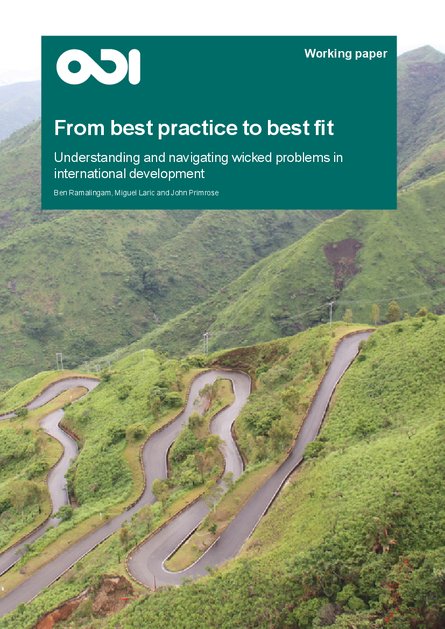
The methods of complex systems research are increasingly being used and valued by international development organisations. These approaches enable a shift away from existing tools and business processes that reinforce a focus on static, simple and linear problems. The evidence is that these methods can help development partners better navigate the complex, dynamic realities they face on a day-to-day basis.
This Working Paper summarises the findings of a series of small-scale pilots of selected complex systems methods in DFID’s wealth creation work. The pilots contributed to improved analysis and understanding of a range of wicked problems, and generated tangible findings that were directly utilised in corporate and programmatic decisions. They played a significant role in the design of two large programmes, and provided the evidence base for a root and branch review of DFID processes. The Working Paper concludes that there are considerable opportunities for doing more programming using these methods, with real potential for enhancing development decision-making in the face of wicked problems.